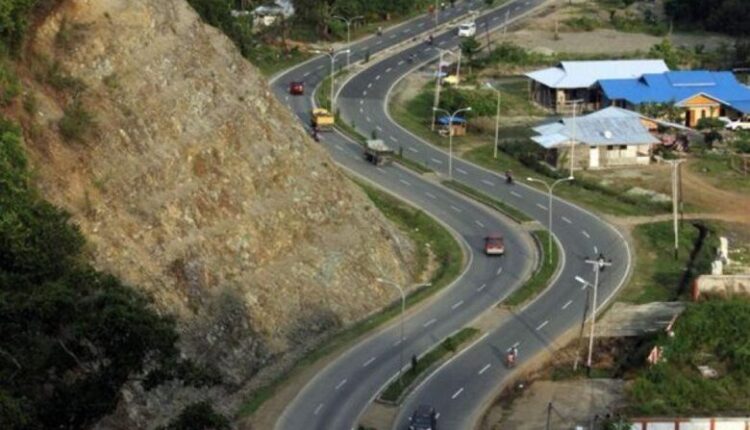Indigenous Communities and Local Governments Continue to Play a Role in Accelerating Papuan Development by the Government
By: Yunus Korowa )*
Accelerating the development of Papua has become one of the government’s top priorities in recent years. As a region with abundant natural potential and extraordinary cultural diversity, Papua is not only the center of attention in terms of economy, but also in terms of social and culture. One important aspect of development in Papua is the involvement of indigenous peoples, who have a significant role in preserving the nature and cultural heritage there.
Indigenous people in Papua, with all their local wisdom, have become an inseparable part of the government’s efforts to accelerate development. In several programs implemented, they are not only involved as beneficiaries, but also as key actors in forest and land conservation efforts, as well as sustainable natural resource management.
One real example of this involvement is the Papuan Indigenous Peoples, Forests and Land (Amahuta) Securing Program, which was initiated by the Limited Association for the Study and Empowerment of Indigenous Peoples (Pt PPMA) Papua.
Through the Amahuta program, indigenous peoples in Sarmi Regency, Papua, have played an active role in preserving forests and customary lands that are an important part of their lives. This program aims to strengthen the position and role of indigenous peoples, and ensure that their tenure rights or customary rights remain protected.
The indigenous people in Sarmi Regency itself consist of five large tribes, namely Sobey, Armati, Rumbuai, Manirem, and Isirawa. These five tribes have local wisdom in maintaining forests and customary lands, which are passed down from generation to generation.
Executive Director of Pt PPMA, Naomi Marasian, emphasized that the Amahuta program needs to be continuously evaluated and adjusted to the times. The evaluation of this program involves various non-governmental organizations (NGOs) working together with the local government.
One of the objectives of the evaluation is to formulate a roadmap for strengthening the capacity of indigenous communities in Sarmi, so that they are able to play a more optimal role in the regional development process.
The involvement of indigenous peoples in this program is not only limited to forest and land conservation, but also includes social and economic aspects. They are involved in various empowerment programs aimed at improving welfare and independence.
This is very important, considering the natural potential that Papua has, especially in the fields of fisheries, agriculture, and tourism. With the active involvement of indigenous peoples, this potential can be managed sustainably and provide significant economic benefits for them.
The Sarmi Regency Government has an important role in supporting indigenous communities. Head of the Regional Tourism Sub-Division of the Sarmi Regional Development Planning Agency (Bappeda), Hendrik Sorondanya, said that the government is committed to protecting and empowering indigenous communities in the region. Support from various parties, including NGOs and development partners, is needed to formulate strategic steps to accelerate this process.
One of the efforts being made by the Sarmi Regency Government is the formation of regional regulations (perda) on the recognition, protection, and empowerment of customary law communities. This regulation is expected to be a strong legal basis for customary communities in defending their customary rights.
In addition, this regulation will also help ensure that indigenous communities are actively involved in the regional development process, so that they can enjoy greater benefits from the results of development.
Hendrik also emphasized the importance of collaboration between the government, indigenous communities, and the private sector in optimizing regional potential, such as fisheries, agriculture, and tourism. With proper and sustainable management, this potential will not only improve the welfare of indigenous communities, but also strengthen the regional economy as a whole. This is in line with the development vision of Sarmi Regency, namely towards a more advanced, independent, and prosperous region.
Although the Amahuta program and local government efforts have shown positive results, the challenges in accelerating development in Papua are still very real. One of the main challenges faced is limited access to basic infrastructure and services, such as education, health, and transportation.
The vast territory of Papua, most of which is still wilderness, makes accessibility one of the biggest obstacles in the development process. In addition, indigenous Papuans also face challenges in defending their rights. Land conversion and exploitation of natural resources by large companies often threaten the sustainability of forests and customary lands.
Therefore, it is important for the government and development partners to continue to strengthen protection of indigenous peoples’ tenure rights, and to ensure that development does not harm them.
In addition, the active involvement of indigenous communities in the development process is also one of the keys to success, because they have very valuable local knowledge in preserving nature and existing resources.
Papua’s development must not only pay attention to economic aspects, but also social and cultural aspects, so that the welfare of the community can be achieved comprehensively. With a strong commitment from all parties, a more prosperous, independent, and sustainable Papua is no longer just a hope, but a reality that can be realized soon.
)* Senior Researcher on Papuan Issues – Independent Papuan Institute for Social and Political Studies
